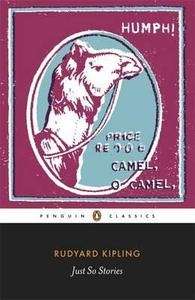Just So Stories

Editorial Penguin UK
Fecha de edición marzo 2011
Idioma inglés
EAN 9780141442402
368 páginas
Libro
encuadernado en tapa blanda
Resumen del libro
The Camel gets his Hump, the Whale his Throat and the Leopard his Spots in these bewitching stories which conjure up distant lands, the beautiful gardens of splendid palaces, the sea, the deserts, the jungle and its creatures. Inspired by Kipling's delight in human eccentricities and the animal world, and based on bedtime stories he told to his daughter, these strikingly imaginative fables explore the myths of creation, the nature of beasts and the origins of language and writing. They are linked by poems and scattered with Kipling's illustrations, which contain hidden jokes, symbols and puzzles.
Biografía del autor
(Bombay, 1865 - Londres, 1936) escribió relatos, ensayos, novelas y poesía. Iniciado en la masonería a los veinte años, en la logia Esperanza y Perseverancia nº 782 de Lahore, Punyab, India, su literatura abarca todos los territorios y géneros, pero principalmente en sus primeros años arroja luz sobre la colonización inglesa de la India. Rechazó el Premio Nacional de Poesía y en tres ocasiones la Orden del Mérito del Reino Unido, que conlleva el título de Sir, lo que contradice su supuesto imperialismo colonial. Aceptó, sin embargo, el Premio Nobel en 1907. Entre sus obras aparecen libros de relatos como "Por el bien de la humanidad", "El hándicap de la vida" (1891) y las novelas "La luz que se apaga" (1891), "Capitanes intrépidos" (1896) y "Kim" (1901). Su autobiografía, "Algo de mí mismo" (1937), se publicó un año después de su muerte.








